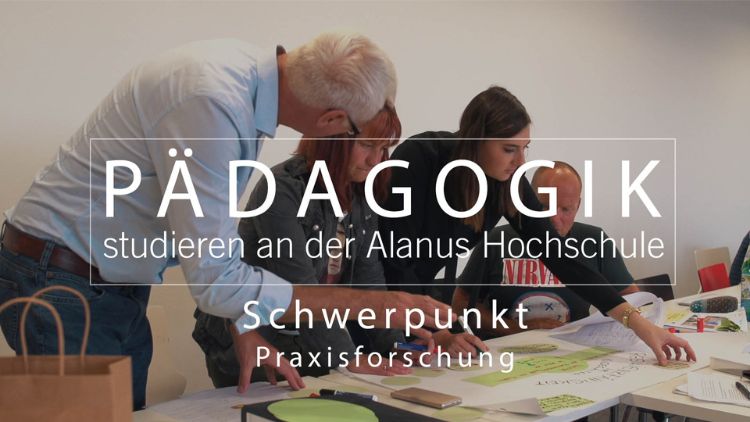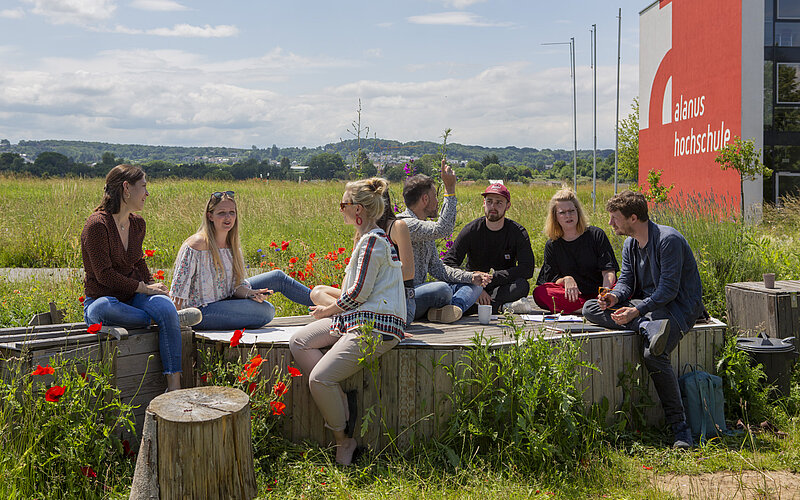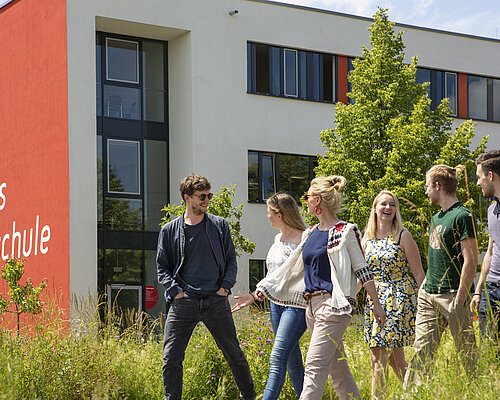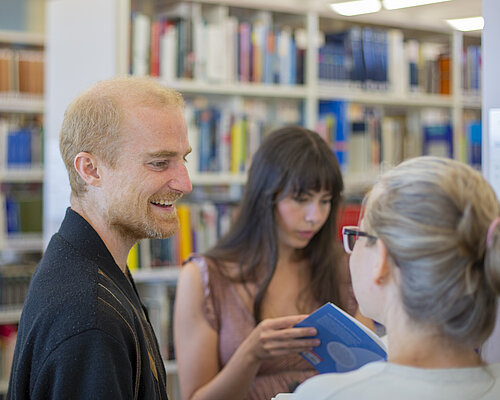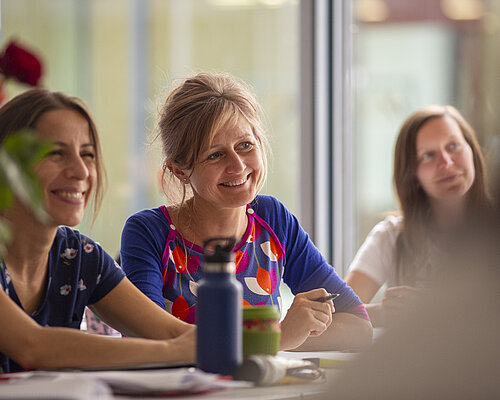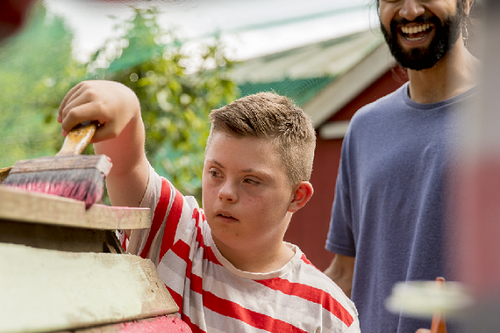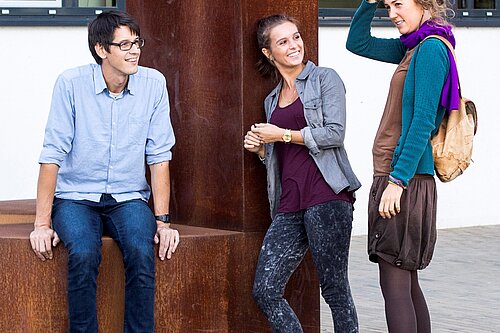
Pedagogy / Practice Research
Master of Arts / Part-Time
Research Educational and Social Processes – Inspire Learning
Are you working in an educational, social or therapeutic field, and would you like to increase your knowledge and reflect on your own professional experience? Do you want to explore and resolve occupational questions? Would you like to acquire research skills that will develop your ability to reflect and your analytical understanding as well as open up new career opportunities for you?
Then you belong in our Master’s Programme Educational Research. The programme focuses on learning basic scientific methods and the step-by-step development and implementation of research projects. The Master's programme opens up career opportunities for you in the management, consultation, evaluation and further development of educational institutions and curricula; in quality management, and in lecturing activities, e.g. Waldorf Teacher Training. It thus provides educators with an opportunity to advance their careers.
Learn more about our Programme Information Days.
Develop your career: from an expert in practice to a researcher of practice!
Special Features
- A research course tailored towards topics and questions in education, social therapy and social science
- Ideal for educators from all fields who want to earn additional qualifications in-service and scientifically reflect on their career experience
- Suitable for those interested in social and therapeutic careers
- Small groups with intensive support
- Education and Waldorf education in scientific dialogue with empirical pedagogical research
- Studium Generale and art contribute to personal development
- The degree qualifies students for admission to a doctoral programme
Course Contents
Education and Training
Fundamentals of educational science, history of pedagogy, alternative and Waldorf education, pedagogical casuistry, developmental psychology
Educational Research Methods
History of empirical educational and social science, quantitative hypothesis testing and qualitative reconstructive research approaches
Collecting and Analysing Data
Planning, implementation and presentation of an educational research project. Course content is systematically tested and implemented in an educational research project
Philosophical Values for Education and Training
Philosophy, art and cultural history, epistemology, ethics, personality development
Personality Development through Art
Painting, sculpting, eurythmy, language formation, etc.
Concepts, Models and Contexts of Educational Institutions
Organisational forms and social conditions in institutes of primary and secondary education
Academic Writing and Master’s Thesis
Fundamentals of advanced scientific methodology, implementation of and reflection on an independent research project and its presentation (Master's thesis)
The exact overview of modules with descriptions of content is available in the module handbook under Downloads.
Specialisations
Depending on the student’s occupational field and career goals, the educational research programme offers the opportunity to deal in depth with the topics of early childhood or late childhood/youth in the context of social developments.
Specialisation: Practice Research in the Context of Childhood and Society
The basic conditions of childhood development as well as childhood educational institutions are the focus.
Specialisation: Practice Research in the Context of School and Society
The main focus in this specialisation is on educational processes that arise in the context of learning and teaching.
The specialisations do not lead to a specialised Master's degree in school education or childhood education. Successful completion of the programme results in a general Master’s degree in Education (M.A.), which can also be combined with the student’s other areas of interest or motivation, e.g. in social science, general education or therapeutic fields.
Attendance Phases & Self-Study
Attendance Phases
Over the period of 6 semesters, the lectures, seminars, research workshops and artistic studio work are divided as follows:
- 7 weeks (8 days each) intensive study
- approx. 27-28 weekend seminars (Fri. 6pm to Sat. 5:30pm)
Self Study
Self-study phases are used to prepare for and follow up on courses through the study of literature, research and artistic work, as well as the planning and implementation of projects. An average of 10 to 15 hours per week should be planned for self-study. Literature lists and additional documents are available online.
During the self-study phases, students and lecturers exchange information via e-mail and during telephone consultation hours.
The final module examinations take place during the course (e.g. written exam, colloquium, presentation, oral exam, term paper).
The Master's thesis should be completed by the end of the Spring Semester in the third academic year.
Admission Requirements
Master of Arts Pedagogy / Practice Research
- A first university degree (Bachelor’s, State Examination, Diplom, Magister or equivent)
Application Process
You can apply for admission at any time. The degree programme starts in the Autumn Semester in September. In order to ensure a smooth start to your studies, your application should be received by 31 July if possible.
International degree-seeking students are asked to contact the General Student Advisory Service for the admission procedure. Please contact the person at this office who is responsible for the degree programme you are interested in.
Once we have reviewed your application, we will invite you for a personal interview to clarify all questions and requirements.
Video
